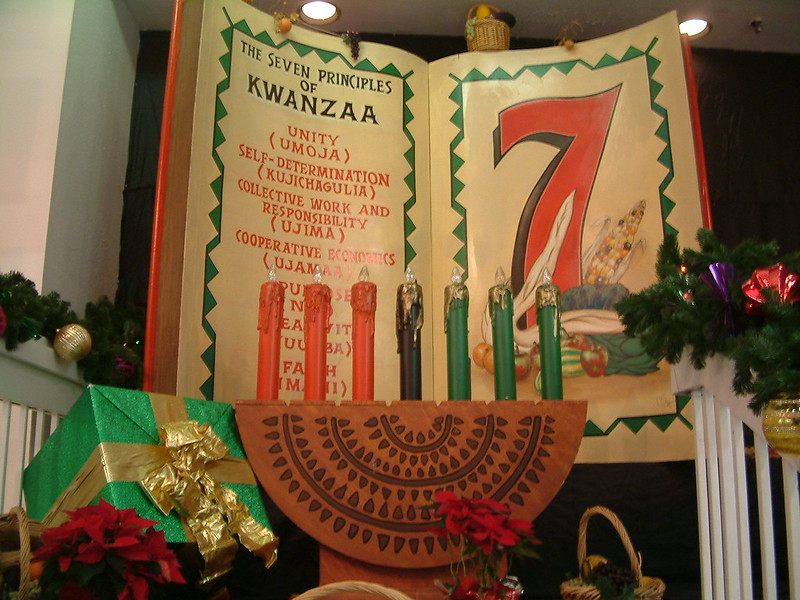Kwanzaa (/ˈkwɑːn.zə/) is an annual celebration of African-American culture that is held from December 26 to January 1, culminating in a communal feast called Karamu, usually held on the 6th day.
It is a modern-day holiday based on African harvest festival traditions from various parts of Africa, including West and Southeast Africa. It was created and first celebrated in 1966.
Kwanzaa celebrates what its founder called the seven principles of Kwanzaa, or Nguzo Saba (originally Nguzu Saba – the seven principles of African Heritage). They were developed in 1965, a year before Kwanzaa itself. These seven principles comprise Kawaida, a Swahili word meaning "common".
Each of the seven days of Kwanzaa is dedicated to one of 7 principles:
Umoja (Unity): To strive for and to maintain unity in the family, community, nation, and race.
Kujichagulia (Self-Determination): To define and name ourselves, as well as to create and speak for ourselves.
Ujima (Collective Work and Responsibility): To build and maintain our community together and make our brothers' and sisters' problems our problems and to solve them together.
Ujamaa (Cooperative economics): To build and maintain our own stores, shops, and other businesses and to profit from them together.
Nia (Purpose): To make our collective vocation the building and developing of our community in order to restore our people to their traditional greatness.
Kuumba (Creativity): To do always as much as we can, in the way we can, in order to leave our community more beautiful and beneficial than we inherited it.
Imani (Faith): To believe with all our hearts in our people, our parents, our teachers, our leaders, and the righteousness and victory of our struggle.

No comments:
Post a Comment